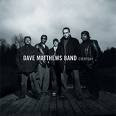Saturday, February 27, 2010
Talking Points #3
Sunday, February 21, 2010
talking Points #2
Sunday, February 14, 2010
Talking Points #1
2. "Alice Washington was born in 1944 in New York City. She grew up in Harlem and the Bronx and went to segregated public schools, not something of her choosing, nor that of her mother and her father."
- This is a rebuttal to a quote from a NYU professor who basically said, if poor people acted appropriately, they wouldn't be poor for too long. Kozol, saying the quote above, is showing that sometimes, a lot of the time, it is not the fault of people who are put in impossible positions to live, it is something they have been given and have to deal with.
3. "Although there are flashes of impatience and sarcasm as she speaks. her comments on these matters, for the most part, are subdued, not openly indignant, and there is a quietness about her words as if she is already looking back upon her life and on New York itself from a considerable distance."
- It seems as if Mrs. Washington has conceded to the way things are in her life and the neighborhood around her. Her looking back at her life from a "considerable distance" makes it seem like she feels she is already dead and hopeless for things to change.
I really thought the reading on Kozol was the best read so far in this class. I liked how the author was more informative and had better real life examples in contrast to Delpit, for example. Instead of telling the reader what to think and how to feel, I think the author intended to give details, but he also wanted the reader to think for him/herself. This strategy was much more effective for me than the Johnson piece, for example. I felt extremely bad for Mrs. Washington and the circumstances she and the surrounding community have to deal with. Kozol made me feel "worlds away" from that environment, and almost made me feel sick that human beings live in such a suffering way.
